Advantages of Ergonomic Office Chairs
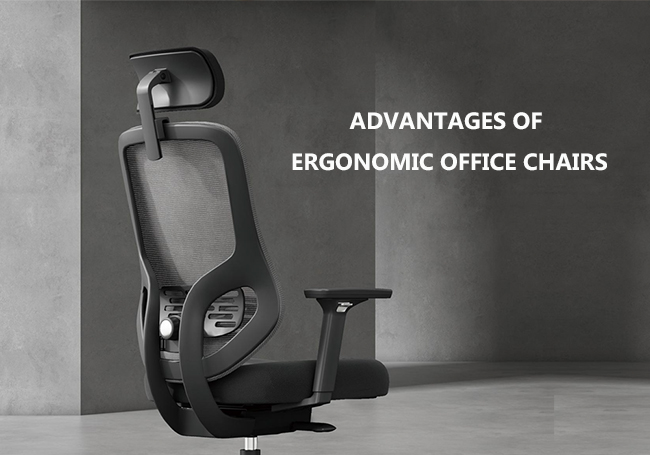
The Advantages of Ergonomic Office Chairs: Enhancing Productivity and Health in the Workplace
Spending long hours seated at work can negatively impact your body. Ergonomic office chairs provide an effective solution to this issue. These chairs are specifically designed to support your body and encourage proper posture during work hours.
Ergonomic office chairs help alleviate back pain, neck strain, and other discomforts associated with prolonged sitting. They come equipped with features such as adjustable height, lumbar support, and customizable armrests, ensuring a perfect fit for your body. This promotes a healthy posture throughout the day.
Beyond comfort, these chairs can significantly enhance productivity. When free from aches and pains, you can concentrate better on your tasks. Many users report increased efficiency and the ability to work longer hours without discomfort when using an ergonomic chair.
Key Takeaways
Ergonomic chairs promote good posture and reduce physical discomfort.
Adjustable features provide a personalized fit for each user.
Enhanced focus and work efficiency are common benefits of ergonomic chairs.
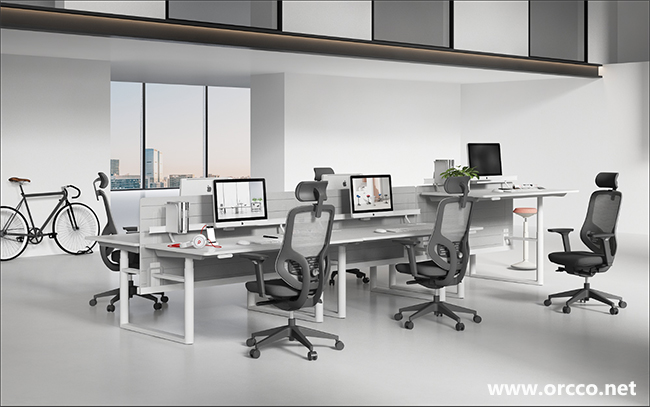
Understanding Ergonomics in Office Chairs
Ergonomic office chairs are crafted to support the body and encourage proper posture. They aim to minimize discomfort and prevent health issues related to extended sitting.
Principles of Ergonomic Design
Ergonomic design focuses on creating products tailored to the user's needs. For office chairs, this involves supporting the spine's natural curvature and reducing muscle strain.
Key principles include:
Adjustability: Chairs should accommodate various body types.
Lumbar Support: Proper lower back support maintains spinal alignment.
Seat Depth: Correct depth ensures even weight distribution.
Armrests: Arm support reduces shoulder and neck strain.
These principles help design chairs that enhance comfort and reduce the risk of back pain, neck issues, and other health problems.
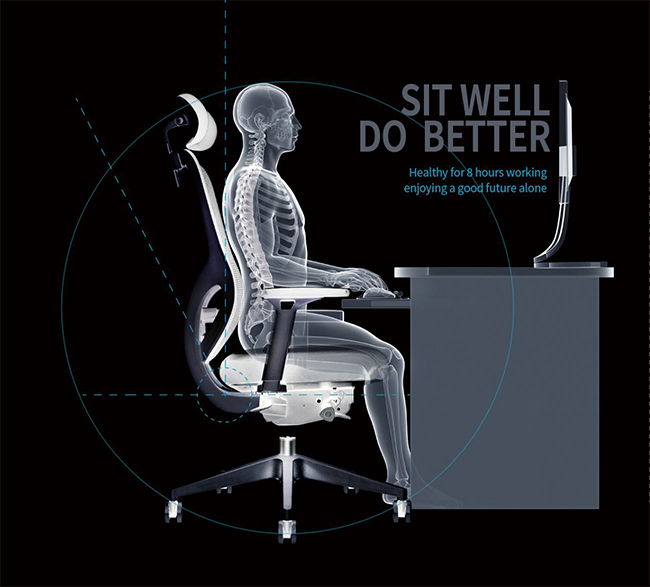
Essential Features of an Ergonomic Office Chair
Ergonomic chairs boast several critical features:
Adjustable seat height
Lumbar support
Tiltable backrest
Swivel base
Padded seat
The seat height should allow your feet to rest flat on the floor. Lumbar support maintains the lower back's natural position. A tiltable backrest lets users find their most comfortable angle.
A swivel base facilitates easy access to different areas of the desk. Seat padding helps distribute weight evenly, reducing pressure points.
These features work together to promote proper posture and minimize strain during long work hours.
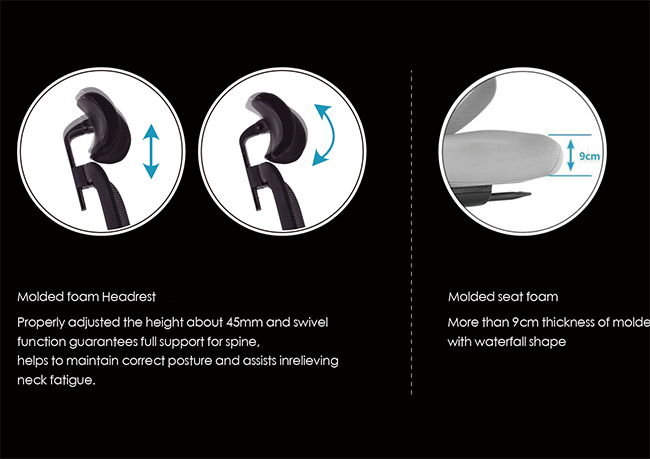
Health Benefits of Ergonomic Office Chairs
Ergonomic office chairs offer significant health benefits for individuals who spend extended periods seated. They help prevent pain, improve posture, and enhance overall well-being.
Reduced Risk of Musculoskeletal Disorders
Ergonomic chairs lower the likelihood of developing musculoskeletal issues, which often arise from sitting in poorly designed chairs for long durations.
Proper lumbar support in ergonomic chairs maintains the spine's natural curve, reducing lower back pressure and alleviating back pain. Adjustable features allow users to customize the chair to their body, enhancing comfort.
Neck pain is also reduced with ergonomic chairs. Headrests support the neck and head in a neutral position, minimizing strain from prolonged screen time.
Ergonomic chairs can help prevent:
Lower back pain
Neck stiffness
Shoulder tension
Wrist discomfort
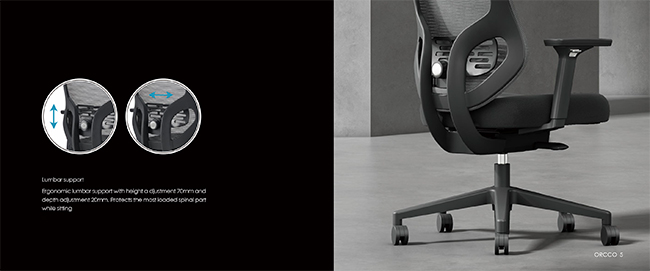
Improved Posture and Back Support
Good posture is crucial for spinal health. Ergonomic chairs promote better posture through thoughtful design.
The backrest of an ergonomic chair follows the spine's natural S-shape, encouraging users to sit upright rather than slouch. Many chairs feature adjustable backrests to fit different body types.
Armrests on ergonomic chairs support the upper body, reducing spinal and shoulder strain. They also help maintain a comfortable typing angle.
Key posture benefits include:
Reduced spinal compression
Less muscle fatigue
Better alignment of the head, neck, and spine
Enhanced Circulation and Overall Health
Prolonged sitting can impair blood flow. Ergonomic chairs help mitigate this issue.
The seat pan often features a waterfall edge, reducing pressure on the thighs and promoting better blood flow to the legs and feet.
Many ergonomic chairs allow for movement while seated, enhancing circulation throughout the body. This can prevent swelling in the legs and feet.
Improved circulation from ergonomic chairs may lead to:
Increased energy levels
Enhanced focus and productivity
Reduced risk of blood clots
These chairs also encourage small position changes, preventing stiffness and keeping muscles active during long workdays.
Impact on Productivity and Well-Being
Ergonomic office chairs significantly boost productivity and promote employee well-being. They reduce muscle fatigue from prolonged sitting and create a more comfortable work environment.
By minimizing discomfort and supporting proper posture, ergonomic chairs help employees maintain focus and efficiency throughout the day. This leads to higher productivity and a healthier, more satisfied workforce.
In summary, investing in ergonomic office chairs is a smart move for any workplace. They not only enhance employee health but also contribute to a more productive and comfortable work environment.







